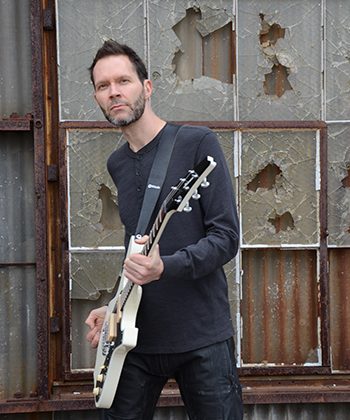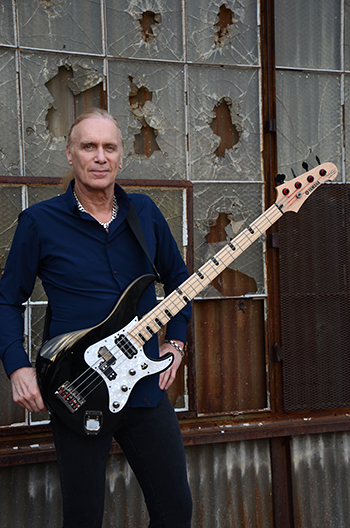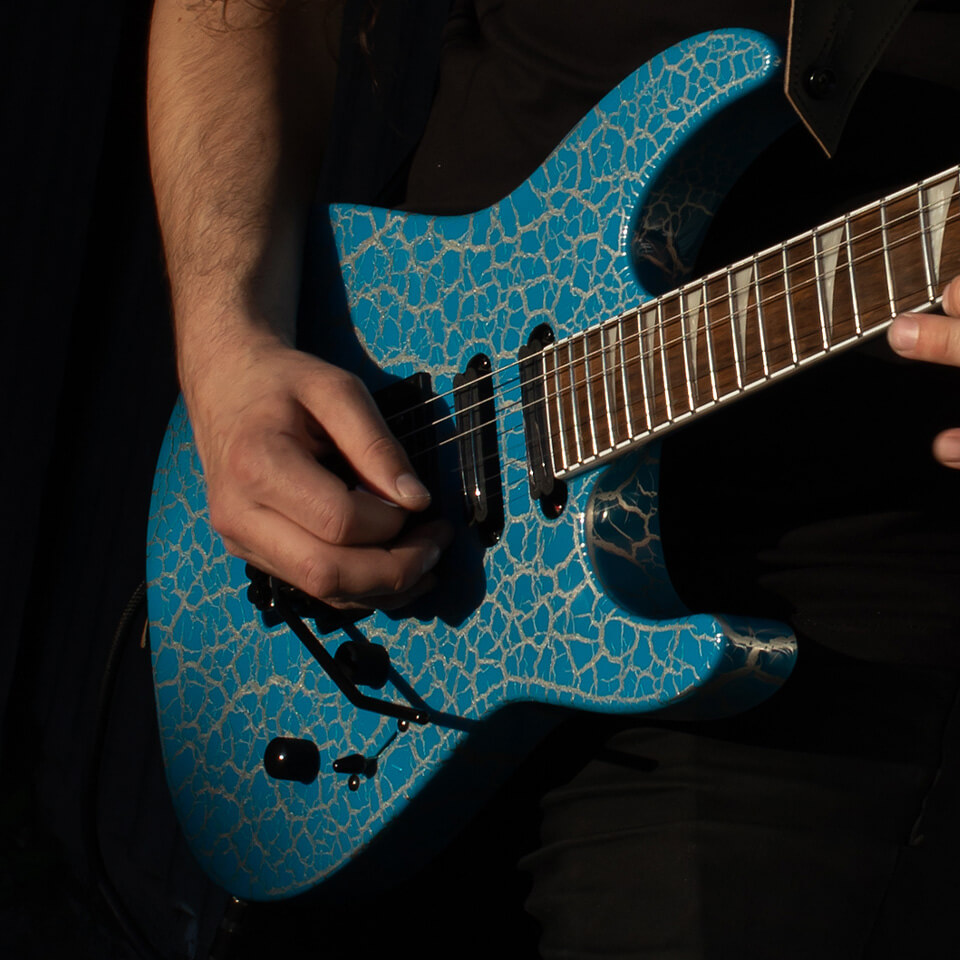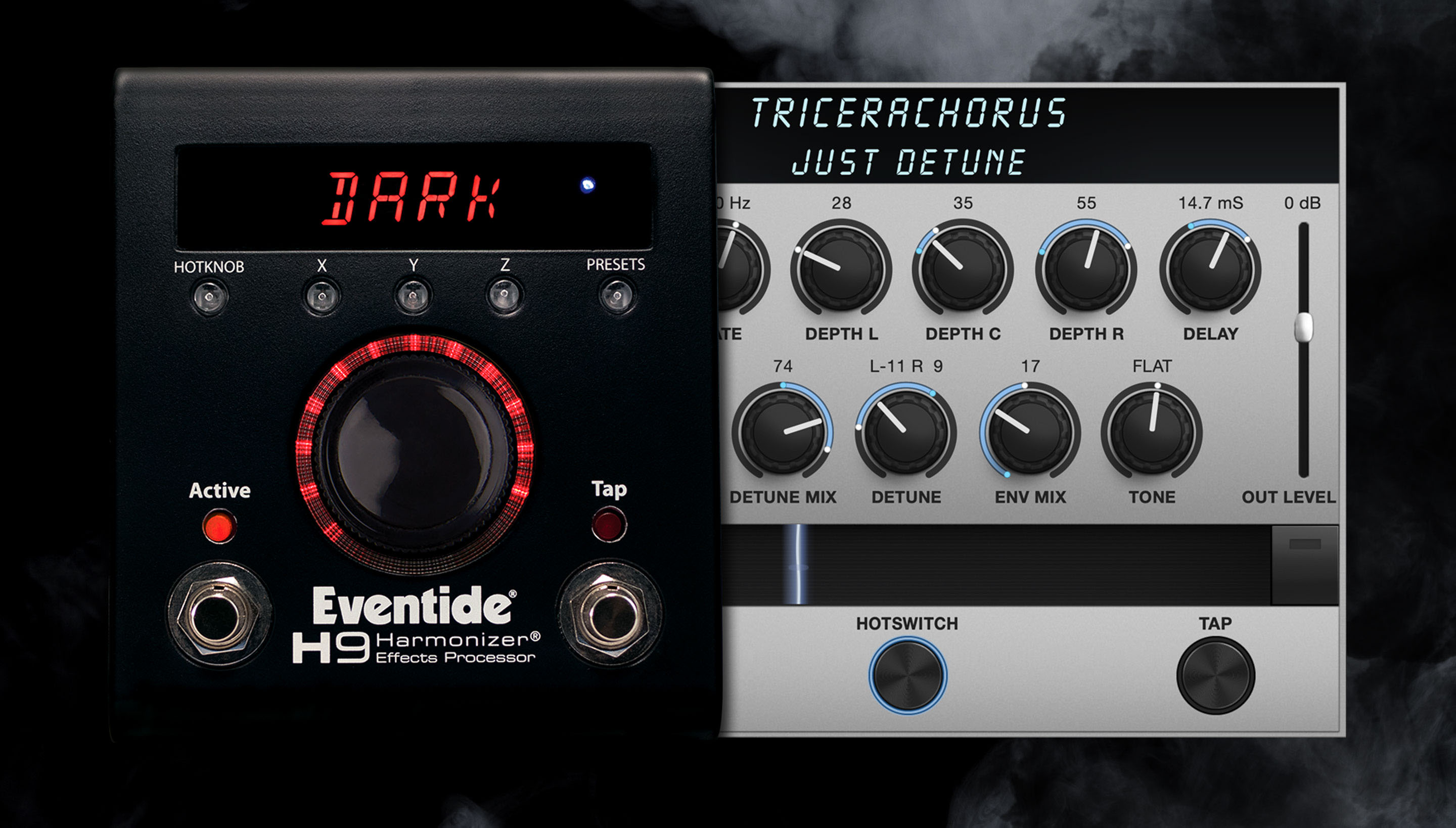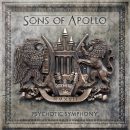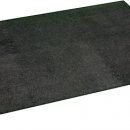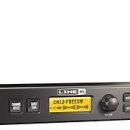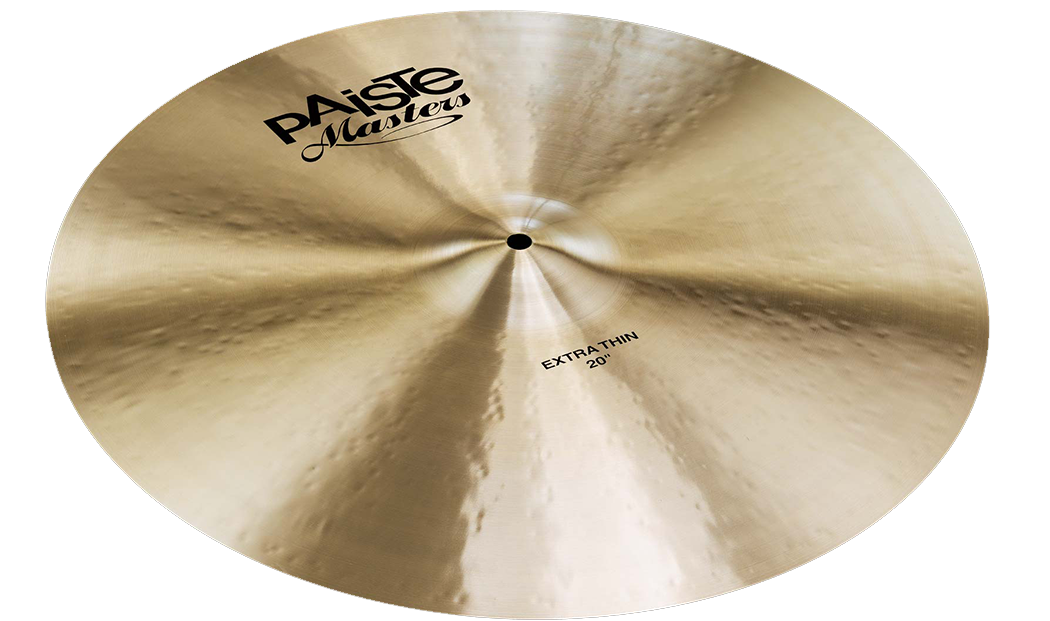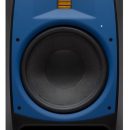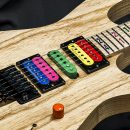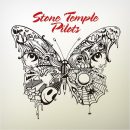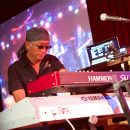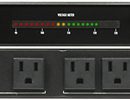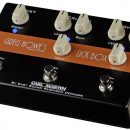It's hard to be guitar player into hard rock and not have at least some passing familiarity with Paul Gilbert's playing and lineage. At the start of his career, alongside co-guitarist Bruce Bouillet, he virtually invented the genre of speed metal, but then really came into his own with the more pop focused (and multi-platinum selling) rock band, Mr. Big.
After the '80s came to an end, Gilbert's solo career took off, combining both instrumental rock works along with vocal tracks, and live shows were full of classic rock cover songs. Eventually, Mr. Big reunited, adding a double dose of work to Gilbert's busy schedule. We caught up with him at the Newton Theater in New Jersey while the band was supporting its new record, Defying Gravity.
“When I write, I'm not thinking about the solo. I'm thinking about the lyrics, the chord changes, and the melody.”
MPc: Let's talk a little bit about the new record, Defying Gravity. How did it all come about? What inspired it?
PG: Well, that's what we do! We make albums! [In a humorous voice] So, we just look for the spot where everybody's got a hole in their schedule and we can logistically get everybody in the same room, which we didn't really do for the last one. It was so nice to do it for this one and not have to overdub and have the click be the thing that connected us. Instead of that we played simultaneously, like music should be played. That alone made it so much more fun.
Even still, we had limited time, only about six days in the studio. I remember the week before, calling the producer and saying, "Are we going to do a record?" I knew that he knew when I had to go on tour in Europe on my own, and I thought, there's only like two weeks left. Somehow we're going to do a record…? He said, "Yeah, do you have any songs?" I thought, nooo… So I got some songs together really quick and so did everybody else and those last six days, we cranked it out.
MPc: That's incredible.
PG: My pleasure, thank you.
MPc: Oh, so this is a question we also asked Billy. You guys got back together with producer Kevin Elson, 30 years later. So much has changed in the studio. Tell us about the differences from then vs. now.
PG: It's just a lot easier now, at least for me, because I have a lot more experience. I've done every conceivable way of recording, from having producers to producing myself. I know more about what's going on with the gear. There's just a lot less mystery involved.
When I think back to that first record, I remember sort of pulling Kevin aside—because I think the first record we must have spent a month and a half on it. Which to me just seemed like an astronomically long amount of time. And that included also doing the vocals and the mixing. So when I say "six days," that doesn't include the vocals and the mixing, that was just basic tracks. Eric continued to work on it. I actually did a couple of overdubs from the road. I'd get back from my clinic to my hotel room and plug in a little interface to my computer. I did two solos that way, pulling a couple of all-nighters. The majority of it was basic tracks in six days. And then Kevin mixed it, I don't know how long it took him.
But back then, we were there for everything. I remember that's when I learned to play piano, because there was so much downtime for me. I mean, we'd finish the guitar part, then while he's mixing or Eric's doing the vocals and there I was. I wasn't at home, had nothing to do. There was a really nice Steinway and I'd learned all these piano songs on guitar so I sort of just put them back.
MPc: Oh, wow.
PG: This one there was no time to learn how to do anything else. It was just … you know, spend 100% of the time working on the record.
MPc: It's come a long way from the days of Racer X.Mr. Big, Defying Gravity
PG: Mm-hmm.
MPc: What's the feeling going from that era—that stage in your playing, and performing today?
PG: Oh, let's see. When I think back to Racer X, the first thing that comes to mind is when I heard Yngwie [Malmsteen] and to some extent Van Halen did this, too, where the rhythm section would do the job of communicating the groove to the listener. So you had the drums and the bass giving that message.
Then, on top of that, a lot of the guitar was going as fast and as crazy as you could, and it had an intensity to it that was really exciting. But since then, I think Yngwie and Eddie did that fabulously. Both of those guys have an impeccable sense of timing. When they would land it, they would, just like Olympic gymnasts, because they might be flipping up in the air, but ooom, they'd land it perfect every time. They knew right where they were. But, unfortunately, solos like "Eruption," which are kind of free form, became so popular and they just messed people up because everybody in their bedroom stopped playing in time. Including me.
Fortunately, I think I still had an instinct for where the timing was and I think I still landed things all right. But a lot of the solos back then were, okay, key B-minor—just go for it. You play through your scales as quickly and furiously as you could. It's exciting!
But now, from a teacher's perspective, seeing how damaging that has been to so many players who never learned to land it and don't know where they are, never developing a sense of rhythm and think they can survive without one, I think I just feel like it's a public service to play in time as much as possible.
MPc: That's great.
PG: Yeah, so now my instinct for playing in time sets off an alarm in my head when I'm not playing in time. Like, whoa, cut that out. Where before I was just fine with it.
That's it. I'm just really aware that it's not only the drummer and bass player's job to play in time. It might be nice if the guitar player did it, too.
MPc: What's your favorite track on the new album?
PG: Well, I like a lot of them. I think one of my favorite moments is the solo on "Be Kind," just because it's kind of a blues solo. It's not the traditional reference changes in terms of when they happen, but it's kind of got the 1-4-5, maybe some other stuff in there.
That's what I've been working on so much, and that's the other thing. In the old days, I couldn't really play changes. I just would try to write—if there were chords, I'd try to keep it in the same key. And, if you play fast enough, nothing gets emphasized, so it's okay. You know, if you hit the six a little bit too much, you don't really hit it too much, because you're hitting everything. All notes are equal.
The more you slow down, the more all notes aren't equal and you got to be careful about the six. And of course if there are changes, then your whole world changes. It's almost like, if you're a drummer and all of a sudden your snare isn't where it used to be and now it's over there and you've got to restick it.
So that, especially somebody who came from the one key, playing-as-fast-as-you-can world, blues is unbelievably challenging because it's like being a drag racer and suddenly you're on a road with a lot of turns, but you're not used to turns. You're just used to go in a straight line as fast as you can. But I really enjoy the turns now. I'm still relatively a beginner in my own musical journey, but it's getting easier and I'm getting more confident. That solo's one of the first ones where it felt like I was making the turns without hitting too many trees on the side of the road.
MPc: I love the ending of that song, the jam.
PG: Oh, yeah.
MPc: That's just fantastic. This is another question we asked Billy. After listening to the album maybe four times now, it's clear how good Eric Martin is as a singer. I mean, I've been following you and Billy for 30 years so I'm familiar with the music, but this kind of took me back, where I was constantly in awe of his singing.
That really led me to consider the harmonies, and the process of how you blend being a singer with being a guitar player, you know what I mean? How do you go about that?
PG: Well, I think—I really wanted to be a singer before I wanted to be a guitar player. I grew up with my parents' records, which were the Beatles and a lot of '60s pop, so I remember wanting to buy a microphone. And then there was Elton John and the Osmonds, really vocal music. Visually I liked the guitar; but didn't really know what it sounded like. I just knew it looked cool. And obviously I eventually got into it and found out what it sounded like and enjoyed that as well.
I think it helps so much when you pay attention to the vocals, when you love the vocals. As a guitar player, when Eric is singing, I make room for him. I pay attention to what he's doing. I find sometimes I'll hear people who will just sort of ignore the vocals completely. But, I think it's my love of the vocals that allows me to fit into the band and to spend time on the harmonies. A lot of times the solo's the last thing I'm thinking about. Because I'm a writer, as well, so when I write, I'm not thinking about the solo. I'm thinking about the lyrics, the chord changes, and the melody.
MPc: Live, what's your choice of monitoring for the vocals? Do you use in-ears?
PG: I've tried everything. At the moment, my favorite thing is earplugs stuffed in as much as they can and a loud monitor wedge with a very simple mix.
The other thing is I really like being close to the drums. I remember the first big tour where we were supporting Rush.
MPc: I was there.
PG: It was the big stage. I grew up in basement bands and playing bars where I was still pretty close to the drums, but on those big stages you might be 30 feet away. So, even if you hear them, you're not hearing them in time because there's an actual delay due to the time it takes for sound to travel. So you have to really get the drums cranking in the side-fill and in the wedge. I think I lost a lot of hearing that way.
But now, with my hearing loss, I just wear the earplugs. I don't even bother with cymbals. I told the drummer, like the intro of "Green Tinted" where it's supposed to be the drummer creating this backwards high hat effect and I play along. I just told him, I've got a disability and I will never be able to hear your high hat, my apologies. I'll start it and you follow me.
MPc: That works.
PG: Ever since then, it's been great. But anything where there's a high hat cue, I've got to look.
MPc: The visual.
PG: Yeah, and basically besides that, I've just got the snare and kick and maybe some tom-toms, because it's good to cue up those from a fill. Then, a bunch of guitar and then voice, because you can hear your voice through your head, too.
MPc: Yeah, it just resonates in your skull. Absolutely. During the time where you left for your solo tour, how was it coming back in, and how did it work with Ritchie [Kotzen]?
PG: It was a long time. I think it was like over ten years. And so by that time, everything had mellowed so much that we all really appreciated that we could come back. People still remembered us and we could still play big places. Ever since then, it's been really nice because we all sort of know each other and it's so much easier than the old days. In the old days, musically it worked, but after eight years on the bus… something had to go.
Now we do other stuff in-between and I think that helps. It's nice to have that variety.
MPc: How about from the gear standpoint? What's your favorite go-to amp? I know you have a long-standing relationship with Ibanez.
PG: For the amps, Marshall stuff, you can get it anywhere, which is nice. I tend to run it really clean because any Marshall amp I get, I can get the most consistent sound that way. If I rely on the head for the distortion but then we do a fly-in gig in Sweden, if I was used to the JCM 800, the 800 is a 900 instead. It's different, you have to adapt to it, so if I just set it up to be clean and I have a couple of pedals to get distortion, then it seems to be a little more consistent.
MPc: What's your favorite go-to Ibanez guitar?
PG: Oh, the Fireman. It has a big, thick neck on it. I've got a bunch of them that are all different, but actually my main one is a totally stock, factory model. I just love it.
MPc: Do you use any musical apps on your phone?
PG: Well, the voice recorder. Most of the songs I write now, that's where the seed of the idea starts, because it's just like carrying around a cassette recorder. I love that. You can write in the car, it's just like a great notepad.
And, actually, the Note Pad for lyrics.
MPc: Tuner?
PG: No, I've got a clip-on tuner. The TC Electronic one.
Can't get enough Paul Gilbert? Check out two previous conversations:
Paul Gilbert: Humble Shredder Pushes Stones Uphill
Paul Gilbert & Andy Timmons Interview Each Other!
Forward by: Scott Kahn
Interview by: Derek Davodowich
Photos: William Hames

